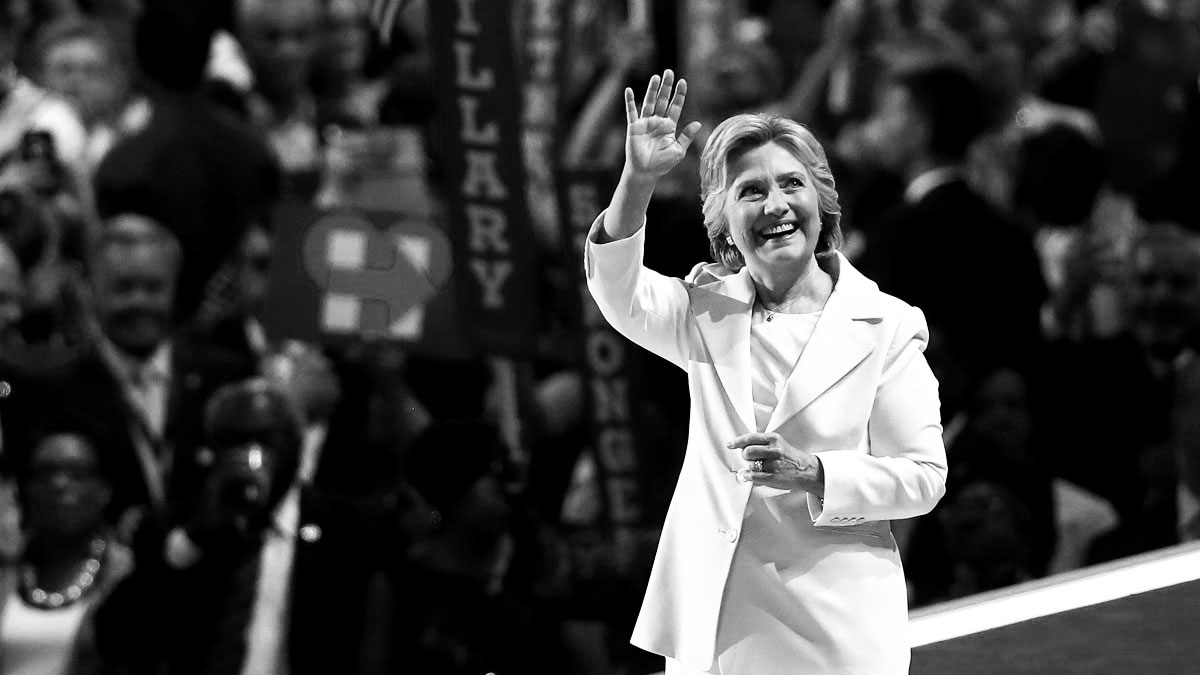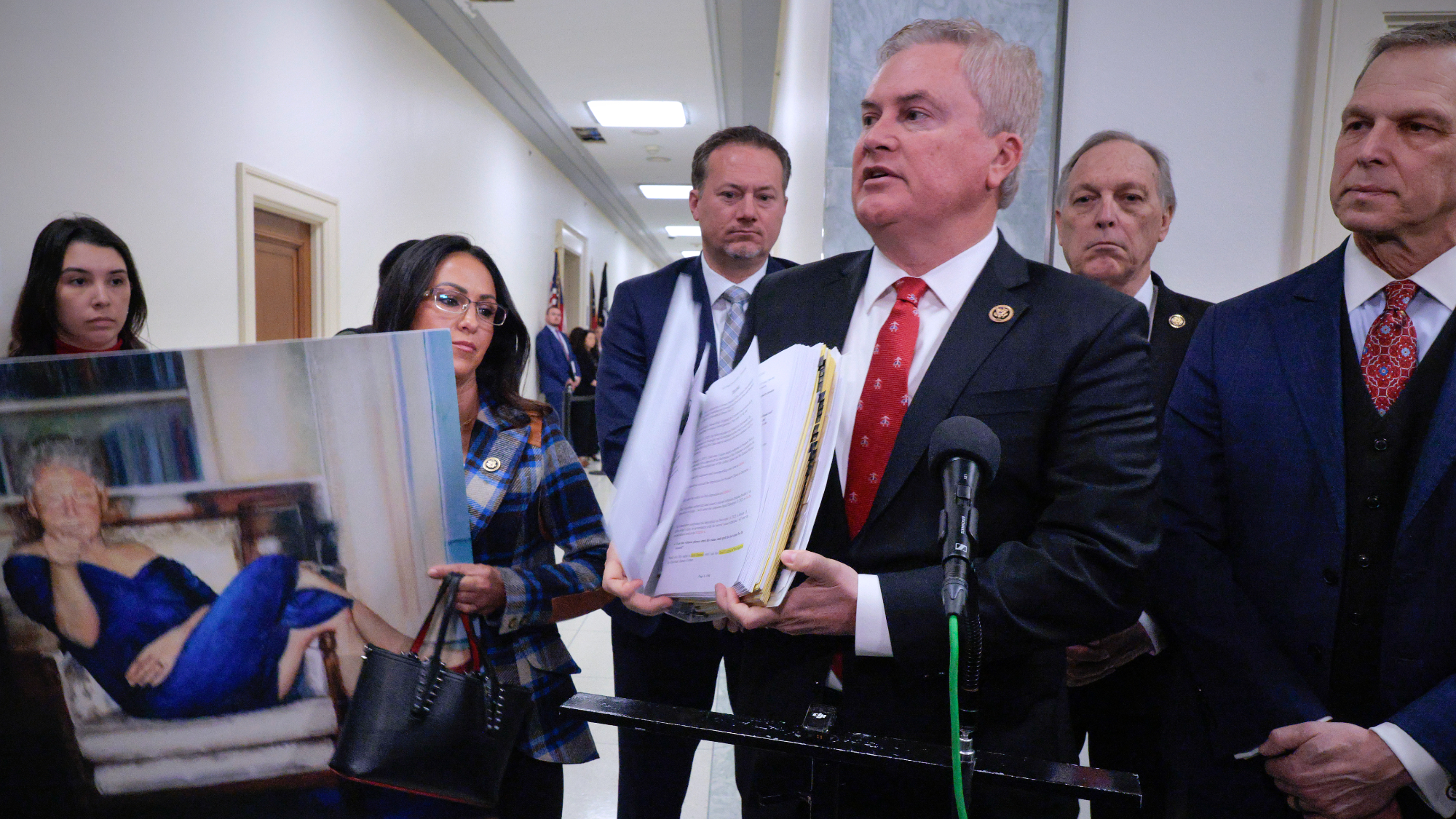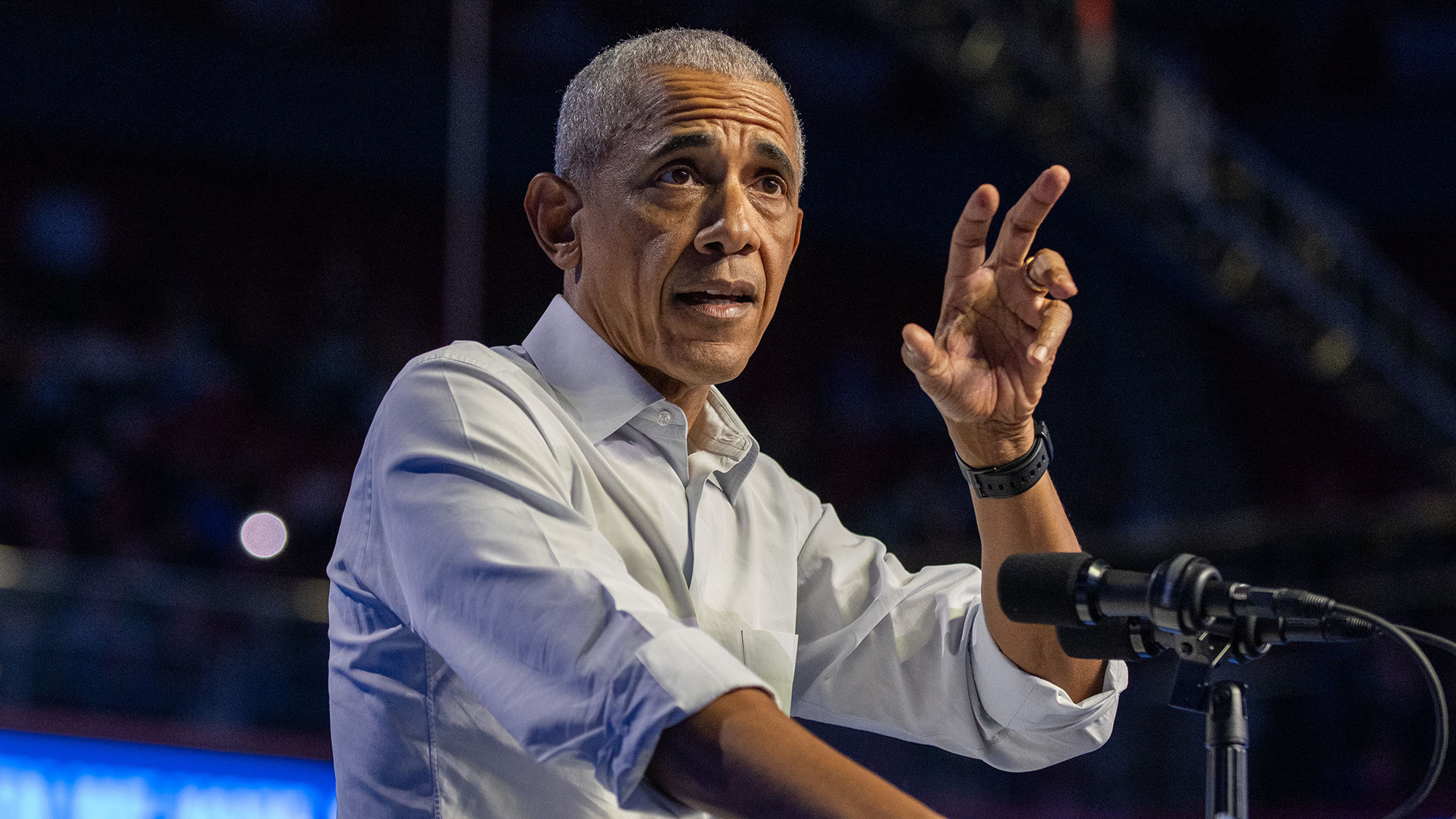How Hillary Clinton lost the US presidency
She would have been her country's first female commander-in-chief, but why did it all go wrong?

A free daily email with the biggest news stories of the day – and the best features from TheWeek.com
You are now subscribed
Your newsletter sign-up was successful
Hillary Clinton has missed out on the chance to become the first female president of the United States – a job for which she had spent a lifetime preparing.
It was snatched from her once before, in 2008, when Barack Obama stormed the Democratic primaries. This year, Clinton prevailed over Bernie Sanders, the left-wing senator from Vermont, following a drawn-out battle, but failed to vanquish her Republican rival, Donald Trump.
After almost a quarter of a century in the political spotlight, the former first lady, senator and secretary of state began the race with "unprecedented advantages", says the Daily Telegraph. But there was plenty to justify the "murmurs and misgivings" of her critics, whether it was her flawed handling of the 2012 jihadi attack on the Benghazi consulate in Libya, during which a US ambassador was killed, or the donations to the Clinton Foundation from "questionable" regimes.
The Week
Escape your echo chamber. Get the facts behind the news, plus analysis from multiple perspectives.

Sign up for The Week's Free Newsletters
From our morning news briefing to a weekly Good News Newsletter, get the best of The Week delivered directly to your inbox.
From our morning news briefing to a weekly Good News Newsletter, get the best of The Week delivered directly to your inbox.
What did she stand for?
The Democratic campaign set out policies in copious detail – key pledges include cheaper university education, tax reforms to benefit low and middle-income workers, a fairer healthcare system and tighter gun controls. But critics on both the left and the right accused her of lacking an over-arching vision.
"Clinton's run for the White House seems more about personal political ambition than the country's well being," said Conservative political consultant Karl Rove, earlier in the year.
Others said keeping Trump out of the White House was reason enough to vote for her.
A free daily email with the biggest news stories of the day – and the best features from TheWeek.com
Clinton "offered herself as a steady and patriotic American who would stand up for citizens of all races and creeds", says the New York Times. She also vowed to "unite the country to persevere against Islamic terrorists, economic troubles, and the chaos of gun violence".
She may lack the pizzazz and the oratorical skills of her husband Bill, said The Independent, but many were grateful that the Democrats could offer a candidate with an "unglamorous preference for policy over the theatrics of politics".
So why didn't she win?
Americans have not warmed to Clinton. In fact, she was the least popular presidential nominee in history – with the exception of Trump.
Partly, says commentator Jonathan Rauch, it's over-familiarity. It's a century since anyone was elected president more than 14 years after winning election as a governor or senator and while Clinton, elected senator from New York in 2000, is "technically only a couple of years past this benchmark for staleness", she has been a fixture in US politics since Bill ran for president 25 years ago.
To many voters, not least those who backed Sanders, she looked like the "dynastic candidate of a party that has lost touch with its base", says the Telegraph.
Did gender play a role?
Unquestionably, says Janice Turner in The Times. What else could be blamed for Clinton's unpopularity?
It's unfair to dismiss her as an unprincipled "machine politician" or Washington "dynast" - a draper's daughter from Illinois, she was a "spectacled swot" who won a scholarship to Yale, adds the journalist. And she never abandoned her feminist principles: as secretary of state she was quite ready to lecture world leaders on the importance of girls' education. Much of the problem is down to simple sexism. "A female president, perhaps more than a black one, threatens the status quo."
One female senator claimed Clinton was judged by a double standard. "What's being said about Hillary is what women have heard for centuries," she said. "You're too loud, you're too aggressive, you're too pushy. Why do you want the vote?"
In a male candidate, her supporters say, the "arrogance" and "entitlement" identified in Clinton may have gone unremarked, or been marked down as evidence of experience and determination.
What else turned voters off?
Many Americans didn't trust Clinton. It's a "persistent" if "preposterous" narrative of the election that "Hillary Clinton is a slippery, compulsive liar while Donald Trump is a gutsy truth-teller", says the New York Times.
Nevertheless, Clinton has not always been entirely straightforward. When she collapsed at a 9/11 memorial event, it later emerged that her campaign had concealed a pneumonia diagnosis for two days.
But the saga of her emails cast an even longer shadow. During her time as secretary of state, Clinton used a private email address and server for official correspondence instead of her government one. She says she did this for convenience, as it meant fewer devices to carry around, but it was against official rules because the server was not considered secure enough to send or receive classified material.
From a group of 30,000 emails provided by Clinton for the investigation, the FBI found she sent or received 110 classified messages. However, the FBI concluded that while Clinton was "extremely careless", there was no sign of criminal intent and no attempt to deliberately delete or hold back work emails from the authorities. The last-gasp discovery of another trove of messages, announced less than two weeks before the election, did not alter that assessment, but it changed the tenor of the campaign's final phase.
Could she have won?
A strong performance at the live debate steadied Democratic nerves, but Clinton struggled to regain the advantage she enjoyed after her party's convention, when a series of powerful speeches, culminating in her own, opened up a commanding poll lead.
It proved short-lived: in the following weeks, fears about Clinton's health sapped her support. Trump, meanwhile, appeared to benefit from anxiety about a series of minor terrorist attacks in US cities.
The tables turned when footage appeared of Trump boasting about having kissed and groped women without their consent. Unlike other scandals, this one seemed to do the Republican real damage and Clinton pressed home the advantage in subsequent debates.
When several women accused him of sexual assault, Trump went on the offensive, suggesting one of them was not attractive enough to have caught his eye. Clinton soared in the polls and states as Republican as Texas seemed within her reach.
Then, suddenly, the race swung back when the FBI announced a new investigation into her emails. By the time Clinton had been cleared for a second time, two days before the election, her lead in the polls had been cut to a few points.
It was not enough, and now her supporters are left to wonder what might have been. Among them is her immediate predecessor, Barack Obama, who said during the campaign that "there has never been a man or woman – not me, not Bill, nobody – more qualified than Hillary" to be president. "She's tested, she's ready, she never quits."
Now, at last, she will have to step aside.
-
 How to Get to Heaven from Belfast: a ‘highly entertaining ride’
How to Get to Heaven from Belfast: a ‘highly entertaining ride’The Week Recommends Mystery-comedy from the creator of Derry Girls should be ‘your new binge-watch’
-
 The 8 best TV shows of the 1960s
The 8 best TV shows of the 1960sThe standout shows of this decade take viewers from outer space to the Wild West
-
 Microdramas are booming
Microdramas are boomingUnder the radar Scroll to watch a whole movie
-
 How corrupt is the UK?
How corrupt is the UK?The Explainer Decline in standards ‘risks becoming a defining feature of our political culture’ as Britain falls to lowest ever score on global index
-
 Clintons defy House GOP on Epstein subpoenas
Clintons defy House GOP on Epstein subpoenasSpeed Read The House has already received what ‘little information we have,’ the Clintons said
-
 The high street: Britain’s next political battleground?
The high street: Britain’s next political battleground?In the Spotlight Mass closure of shops and influx of organised crime are fuelling voter anger, and offer an opening for Reform UK
-
 Is a Reform-Tory pact becoming more likely?
Is a Reform-Tory pact becoming more likely?Today’s Big Question Nigel Farage’s party is ahead in the polls but still falls well short of a Commons majority, while Conservatives are still losing MPs to Reform
-
 Taking the low road: why the SNP is still standing strong
Taking the low road: why the SNP is still standing strongTalking Point Party is on track for a fifth consecutive victory in May’s Holyrood election, despite controversies and plummeting support
-
 Trump attacks Obama as Epstein furor mounts
Trump attacks Obama as Epstein furor mountsSpeed Read The Trump administration accused the Obama administration of 'treasonous' behavior during the 2016 election
-
 What difference will the 'historic' UK-Germany treaty make?
What difference will the 'historic' UK-Germany treaty make?Today's Big Question Europe's two biggest economies sign first treaty since WWII, underscoring 'triangle alliance' with France amid growing Russian threat and US distance
-
 Is the G7 still relevant?
Is the G7 still relevant?Talking Point Donald Trump's early departure cast a shadow over this week's meeting of the world's major democracies